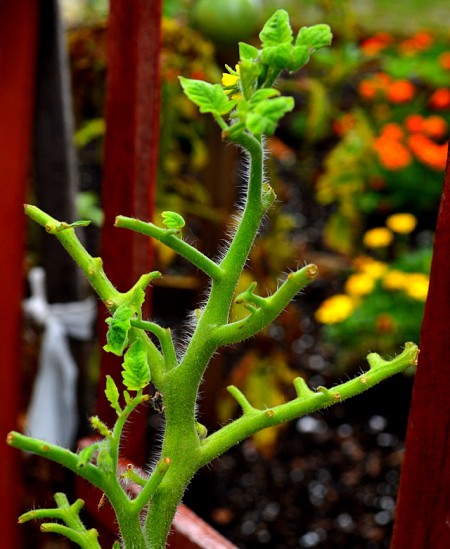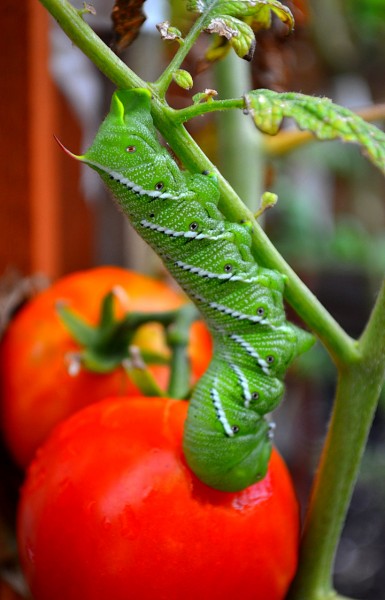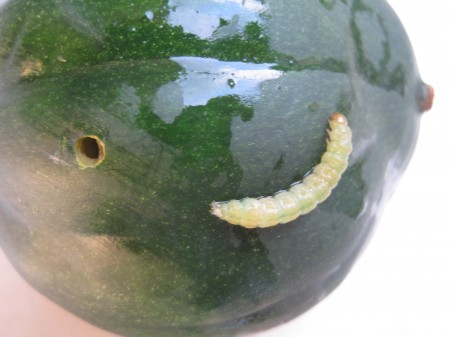… not the horror movie, but still horrible!
I picked the first acorn squash from my garden. I dropped it on the floor and when I picked it up, I was greeted by an unwanted guest crawling from a small hole in the squash. The drop must have dislodged it from its burrow.
Pickleworm
The folks at the Mounts Botanical Garden help desk identified it as a pickleworm. The University of Florida Institute of Food and Agricultural Sciences can tell you more than you ever wanted to know about pickleworms. The bottom line is that they are bad news for south Florida gardeners. Because they are very difficult to detect, the recommended treatment is to prevent infestations with applications of insecticides. In other words, get them before they get you. That is hard to accept if you prefer organic gardening.
The only place that pickleworms winter over is south Florida which means they attack early. They prefer to munch on the blossoms, but will go after the fruit, too. They damage summer and winter squash, cucumbers, cantaloupes, and sometimes pumpkins. In states farther north, damage doesn’t occur until August and September.
And you thought that was bad…
I inspect my garden daily and pick tomatoes, green beans and okra nearly every day. A couple of days ago, I was making my usual inspection and found a defoliated tomato plant where a healthy green plant had been the day before.
 Yikes! Tomato Hornworm
Yikes! Tomato Hornworm
I don’t know how a caterpillar this big could have hidden for as long as it took to get this big, but I never saw this one until it was buried head-deep in a tomato.
 Tomato Hornworm
Tomato Hornworm
The Mounts help desk people viewed this one in a plastic bag. I couldn’t stand to touch it. I think I squealed a little when the limb was cut and the tomato full of hornworm fell into the bag. A picture would never have been enough. This hornworm was a 4-inch long, as big around as my finger beast… beautiful to look at, but it pegged my e-e-e-ew meter.
The Mounts Botanical Garden help desk people were impressed enough to put it in a cage so that it could finish its metamorphosis unsquashed. The hornworm is the the larval stage of the hawk or sphinx moth. They are also know as hummingbird moths. About.com has an organic gardening section that has lots of information on the tomato hornworm.
Tags: Acorn Squash · Mounts Botanical Garden · Okra · Organic Gardening · Pickleworm · Tomato Hornworm · Tomatoes3 Comments


Ucky critters Lila, but nice pics! Your garden certainly has challenges…….
Good Luck to that green thumb, with those kind of critters!
Wow! Terrific pic, Ken! Now I want to see a pic of the sphinx moth!
Back in the day when I cared for the 60 tomato plants that my husband planted every year, my son Todd and I had the most trouble with a persistent box turtle who raided our garden every night. He got caught in our fence trap and was carried off down the creek bed every morning, only to return each night.